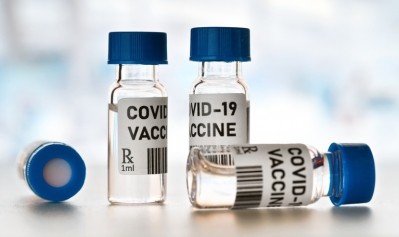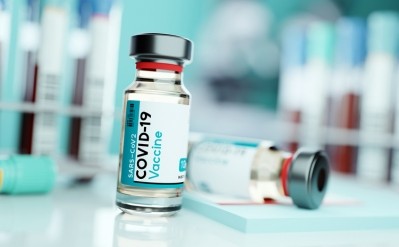Needle-free COVID-19 vaccine COVI-VAC enters Phase 1 trials

Codagenix believes the live attenuated vaccine has the potential to address key logistical challenges: it does not require a needle and syringe to be administered; requires standard freezer and fridge temperatures; and only requires a single dose.
The live attenuated vaccine trains the body to recognise the whole virus – as opposed to just the spike protein as with a number of other vaccines – which the US company believes could be critical as new variants of the virus develop.
And Codagenix believes a nasal vaccine is a good fit against SARS-CoV-2 because of the virus' airborne transmission.
"COVI-VAC’s intranasal delivery offers several potential advantages," a spokesperson told this publication. "A nasal drop, such as what COVI-VAC employs, allows the vaccine to be administered directly to the nasal mucosa, which is where the initial SARS-CoV-2 virus infection occurs. Thus, COVI-VAC offers the potential to elicit an immune response at the point of virus entry, which could help to minimize the ability of SARS-CoV-2 to initially replicate.
"Intranasal delivery also offers several dosing benefits. COVI-VAC does not require a needle and syringe and can be easily administered with minimal training in a mass vaccination campaign."
Potential of broader immune response
The randomised, double-blinded, placebo-controlled dose-escalation study will evaluate the safety and tolerability of the single-dose intranasal vaccine candidate in 48 healthy young adult volunteers. It is being conducted by hVIVO (part of Open Orphan) at its Quarantine Facility in Whitechapel, London.
The study will also evaluate the vaccine’s ability to provoke an immune response: measuring neutralising antibodies, mucosal immunity in the airway and cellular immunity. Codagenix expects to report initial data from the study by mid-2021.
Sybil Tasker, MD, MPH, Chief Medical Officer of Codagenix, said: "Dosing of the first patients in the Phase 1 clinical trial of COVI-VAC, our single-dose, intranasal, live attenuated vaccine against COVID-19, is an important milestone for Codagenix and the hVIVO team.
"As a live attenuated vaccine, COVI-VAC has the potential to provide a broader immune response in comparison to other COVID-19 vaccines that target only a portion of the virus, which could prove critical as new variants of SARS-CoV-2 have begun to emerge.
"Additionally, we believe COVI-VAC can address potential gaps in supplying the global immunization effort against COVID-19, especially in developing countries.”
Cathal Friel, Executive Chairman, Open Orphan, added: "This vaccine is one of the first of the next generation COVID-19 vaccines. In our opinion, because it is a live attenuated virus vaccine, COVI-VAC has the potential to give much longer-lasting cellular immunity against COVID-19 than many of the first-generation vaccines."
Redesigning viral genomes
Codagenix was founded in 2012 and is located in Long Island, NY. Co-founder Dr Eckard Wimmer was the first to synthesize a virus from scratch: serving as the core concept of Codagenix. The ability to synthesize viruses opens the door to rationally redesigning viral genomes to turn viruses into effective prophylactic vaccines or oncolytic therapies.
Codagenix’s computer algorithm re-codes and ‘deoptimizes’ the virus in the vaccine - deoptimized genes encode the same protein sequences but in a suboptimal fashion – resulting in the reduction of pathogenesis while generating an immune response.
COVI-VAC can be easily growth in cell culture, is scalable and can be produced in quantities ‘sufficient to make a significant contribution’ to global demand, says Codagenix.
The vaccine is being developed in collaboration with the Serum Institute of India, the world’s largest vaccine manufacturer.







